I am currently trying to install NIST's sclite, which is part of SCTK 2.4.0 (github or current version). I am attempting the install on Cygwin in bash. The installation is done using make.
What I've Done
I made a directory for the install and navigated to that directory
mkdir sctk2.4.0
cd sctk2.4.0
( You'll possibly need $ cd /path/to/dir/sctk2.4.0 .)
I cloned the project from github
git clone https://github.com/chinshr/sctk.git
navigated into the base folder
cd sctk
then I started following the instructions in the INSTALL file.
Running
make config
worked fine, but after typing
make all
I got the output that follows
(mkdir -p bin)
(cd src; make all)
make[1]: Entering directory '/cygdrive/c/David/programs/sctk2.4.0/sctk/src'
(cd asclite; make all)
make[2]: Entering directory '/cygdrive/c/David/programs/sctk2.4.0/sctk/src/asclite'
(cd core; make all)
make[3]: Entering directory '/cygdrive/c/David/programs/sctk2.4.0/sctk/src/asclite/core'
g++ -o asclite -g -Os alignment.o segment.o sgml_reportgenerator.o alignedsegmentiterator.o reportgenerator.o speechset.o segmentsgroup.o logger.o tokenalignment.o sgml_generic_reportgenerator.o recording.o statistics.o compressedlevenshteinmatrix.o segmentor.o id.o trntrn_segmentor.o linestyle_inputparser.o inputparser.o levenshteinmatrix.o levenshtein.o uemfilter.o speakermatch.o spkrautooverlap.o graphalignedsegment.o rawsys_reportgenerator.o graphalignedtoken.o timedobject.o stt_scorer.o aligner.o arraylevenshteinmatrix.o graph.o main.o trn_inputparser.o alignedspeech.o token.o alignedsegment.o graph_coordinate.o rttm_inputparser.o scorer.o properties.o ctmstmrttm_segmentor.o filter.o speech.o alignedspeechiterator.o stm_inputparser.o checker.o ctm_inputparser.o lzma/LzFind.o lzma/LzmaEnc.o lzma/Alloc.o lzma/LzmaLib.o lzma/LzmaDec.o -lm
alignment.o: file not recognized: File format not recognized
collect2: error: ld returned 1 exit status
make[3]: *** [makefile:62: asclite] Error 1
make[3]: Leaving directory '/cygdrive/c/David/programs/sctk2.4.0/sctk/src/asclite/core'
make[2]: *** [makefile:12: all] Error 2
make[2]: Leaving directory '/cygdrive/c/David/programs/sctk2.4.0/sctk/src/asclite'
make[2]: *** [makefile:12: all] Error 2
make[2]: Leaving directory '/cygdrive/c/David/programs/sctk2.4.0/sctk/src'
make: *** [makefile:20: all] Error 2
I've looked at this SO post, but I've determined that the alignment.o file is not corrupted. Just in case, I tried a few make clean and even re-cloned the project from github, but I still get the same error.
Can anyone help me complete this installation, or at least get to the next step?
System Details
$ uname -a
CYGWIN_NT-6.1 MyMachine 2.10.0(0.325/5/3) 2018-02-02 15:16 x86_64 Cygwin
$ bash --version
GNU bash, version 4.4.12(3)-release (x86_64-unknown-cygwin) ...
$ gcc --version
gcc (GCC) 6.4.0 ...
$ g++ --version
g++ (GCC) 6.4.0 ...
$ make --version
GNU Make 4.2.1
Built for x86_64-unknown-cygwin ...
$ systeminfo | sed -n 's/^OS\ *//p'
Name: Microsoft Windows 7 Enterprise
Version: 6.1.7601 Service Pack 1 Build 7601
Manufacturer: Microsoft Corporation
Configuration: Member Workstation
Build Type: Multiprocessor Free
Note
I'm asking about this problem and then giving an answer to my own question. (I like that StackOverflow is allowing us to do that.) Hopefully, this will make it easier for people to help me with the problems I ran into further in the installation.
The next problem I ran into is discussed here. You can see this next problem in the answer to this problem.
